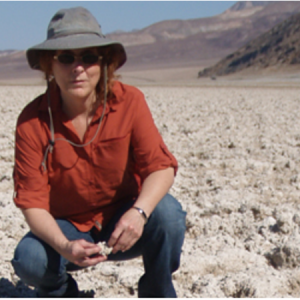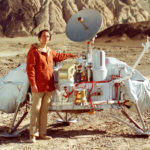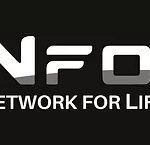Featured image: Carol Cleland.
By Carol Cleland (University of Colorado Boulder)
Cite as: Cleland, C. (2022) “Thoughts on Benner’s “Life, the Universe, and the Scientific Method”. Primordial Scoop, 2022, e0112. https://doi.org/10.52400/JCPW4175
As I argue in Chapters 2 and 3 of The Quest for a Universal Theory of Life [3], definitions and scientific theories are very different sorts of logico-linguistic devices. Definitions dissect the concepts associated with general terms in a natural language into other (ideally, better understood) concepts. Definitions cannot go beyond human concepts and tell us about the nature of mind-independent, natural categories. Yet Steve insists that he is not interested in an analysis of our current concept of life: he wants to know what life truly is, independently of what we happen to think it is based on our very limited experience with a single kind of life, namely, familiar Earth life.
How is a “definition-theory” supposed to be better at achieving this than a scientific theory of life? Steve never tells us. Is it the fact that (as discussed in Ch. 2 of [3]) the most informative definitions provide necessary and sufficient conditions for the application of the terms that they define whereas scientific theories don’t do this for the natural kinds that they—note: the change in terminology—subsume?
To the extent that Steve likens a definition-theory to (what philosophers call) a “theoretical identity statement” this seems to be what he has in mind. As originally construed, theoretical identity statements were supposed to supply necessary and sufficient conditions—derived from scientific investigations vs. conceptual analysis—for the natural kinds that they subsume. But as discussed below, and in Ch. 3 of [3], theoretical identity statements are misnamed; they don’t actually do this. This may explain why Steve cautions that a definition-theory is not “identical” to a theoretical identity statement. But if this is the case, then how does it differ from a theoretical identity statement, and what is the point of appending the term ‘definition’ to ‘theory’? Steve never says.
Steve says that we want an understanding of life that resembles our current scientific understanding of water. In this context, he says that “a molecule of water is ‘defined’ as a molecule built from two atoms of hydrogen and one atom of water”. There are several problems with this explication of the “essence” of water.
First, Steve’s account is not about the essence of the natural kind water, which is the familiar watery stuff found in lakes and water bottles. It is an account of the elemental composition of a single “molecule” of water. Molecules are not natural kinds. Like the elements of the Periodic Table, they are theoretical kinds, part of modern molecular theory. The challenge for a successful scientific theory of water (qua natural kind) is to explain the distinctive characteristics of the familiar watery stuff in terms of molecular theory. Water has distinctive macroscopic characteristics, such as, for example, expanding when frozen, remaining a liquid over a wide range of temperatures, and being a good solvent, which distinguish it from other material substances. Purified water also has a unique triple point. In successfully explaining these and other observable characteristics of water, molecular theory can be said to capture the “essence” of water.
Second, molecular theory doesn’t (as Steve’s tacit identification of water with a molecule suggests) “identify” the watery stuff in lakes and water bottles with molecules of H2O. A single molecule of water doesn’t expand when frozen or remain a liquid over a wide range of temperatures. It doesn’t have a triple point either. Moreover, the purest samples of water aren’t composed of just H2O molecules. When H2O molecules combine they dissociate into ions (H+, OH–, and H3O+). In addition, H2O molecules form complex molecular structures, dimers and trimers, produced by weak hydrogen bonds, which are the source of some of the distinctive macroscopic properties of the familiar watery stuff of human experience, e.g., expanding when frozen and being a good solvent. The point is current chemical theory doesn’t provide necessary and sufficient conditions for the natural kind water in terms of being a molecule of H20 or being composed of just H2O molecules. It provides a complex theoretical framework in which the distinctive properties of the watery stuff of human experience are successfully explained by being composed mostly (but not exclusively) of molecules of H2O.
In short, as the example of the natural kind water illustrates, scientific theories do not supply necessary and sufficient conditions for the natural kinds that they explicate. So, why append the term ‘definition’ to ‘theory’?
Perhaps the answer to this question is to be found in Steve’s “definition-theory” of life, which he encapsulates in a single italicized sentence: “The difference between systems that are life and systems that are not life is that the former have a mechanism for reproduction with errors, where the errors are themselves reproducible, while the latter do not.”
This is an attractive proposal. But it resembles a definition only in being very short; theories are more complex, consisting of sets of fundamental principles or laws (e.g., Newton’s 3 laws of motion) and basic theoretical concepts (mass, force, inertia). Moreover, this statement seems inconsistent with Steve’s claim that “life is chemistry all the way down” since systems of this sort have been implemented on digital computers. Of course, the latter problem could be remedied by appending the term ‘chemical’ to “system”. But this, in turn, gives rise to the question of mechanism: What sort of “mechanisms” count here? Will any physical mechanism work, or must it be chemical, and if so, will any chemical mechanism (for reproduction with errors that are themselves reproducible) work, or does life require a special kind of chemical mechanism? These are the sorts of question that can only be answered by a far more complex theoretical apparatus than the vague statement that Steve provides. There are other issues too, such as the question of whether his “theory-definition” can (in analogy with the case of water) explain hallmarks of life, such as its capacity to sustain itself as a system for an extended period of time; for a proposed list of the distinctive features (“pillars”) of life by a biologist, see [4].
In sum, I don’t see how Steve’s vague “definition-theory” of life is supposed to advance our understanding of the nature of life, especially since (being limited to experience with a single example of life) we currently lack a truly general theory of life. The earlier analogy with water is instructive: The association of the natural kind water with the formula H2O (as captured in the proverbial claim that ‘water is H2O’) didn’t precede molecular theory. It presupposed the development of the concepts of hydrogen and oxygen as basic (not further decomposable) chemical elements. Lavoisier’s (1783) discovery that water is a compound (vs. element) was followed by efforts by Dalton, Avogadro, and Berzelius, in the early nineteenth century, to formulate principles for organizing these and other basic chemical elements into a new theoretical framework (culminating in the periodic table) coupled with the development of a theoretical mechanism for combining them into compounds (molecules). It wasn’t until around 40 years after Lavoisier had shown that water is a compound that Berzelius established the familiar formula (H20) for a molecule of water, in opposition to Dalton’s earlier conjecture that a molecule of water is HO; for more detail on the discovery of the nature of water, see [5]. In short, the “essence” of water cannot be captured in the slogan ‘water is H2O’
Perhaps what Steve has in mind is a promising, partially specified, preliminary principle for a future universal theory of life, something along the lines of Lavoisier’s claim that water is a compound (vs. element). But if this is so, why call it a “definition”-theory of life?
[1] Benner, S. A. (2021) Universal Theory of Life, a debate: https://primordialscoop.org/2021/09/11/universal-theory-of-life-a-debate/
[2] Benner, S. A. (2009) Life, the Universe and the Scientific Method. Gainesville FL, FfAME Press, 312 pp.
[3] Cleland, C. E. (2019) The Quest for A Universal Theory of Life. Cambridge, Cambridge University Press, 245 pp.
[4] Koshland, D. E. (2002) The Seven Pillars of Life. Science 295, 2215-2216.
[5] Ball, P. (1999) H2O: A Biography of Water, Weidenfeld & Nicolson, Great Britain, 400 pp.



